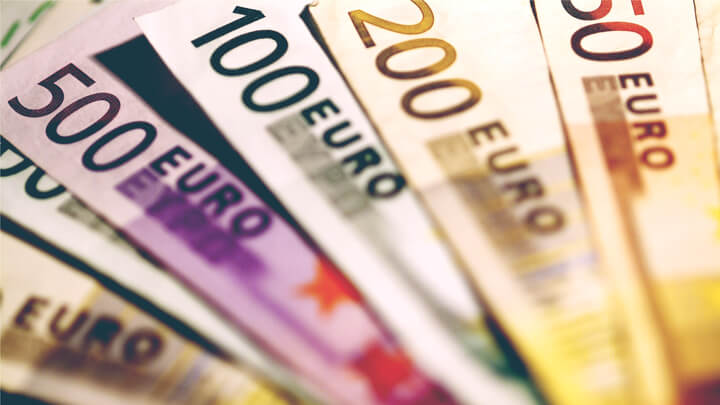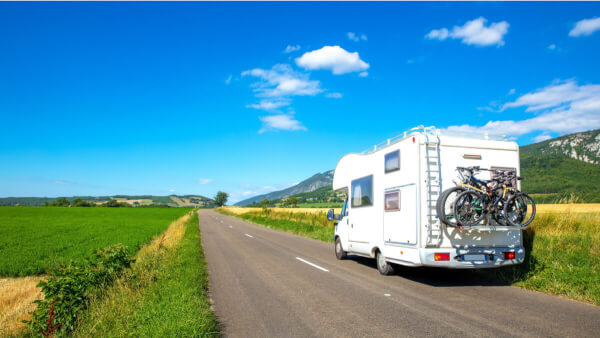Using Amex in France: What you need to know
Read our essential guide to using Amex in France, including fees, exchange rates, tips and where American Express is accepted in France.

France is the most visited country in the world when looking at international arrivals. A staggering 84.5 million international visitors chose France for their travels in 2015 - with more expected over the course of 2016 thanks to their hosting of the Euro 2016 football tournament. Add in the huge expat population, and France is a truly cosmopolitan country.
Whether you’re heading there for a short break or relocating for good, you’ll need to know how to get - and spend - your cash. This guide walks through the banking and currency systems so you know what to expect on your visit.
France is one of the eleven founding members of the Eurozone, with Euros coming into circulation as the only legal tender in 2002.
Other currencies are not widely accepted in France, so you will need to have Euros on you for your visit.
| --- | --- |
| Euro Symbols | EUR, € |
| 1 EUR | One Euro is made up of 100 cents. |
| EUR coins | Coins are available in denominations of 1, 2, 5, 10, 20, and 50 cents, as well as €1 and €2. |
| EUR banknotes | Notes which are commonly used are 5, 10, 20 and 50 Euro denominations. Although €100, €200 and €500 notes are also available, they won’t be accepted by many businesses. |
Coins are designed with a standard image on one side, and the other side features a picture specific to the country of issue. You’ll know the French minted coins as they all have ‘RF’ on them to signify ‘République Française’.
While travelling in the Eurozone, you may find that you have coins of similar denominations, which look quite different to one another. Rest assured that current Euro coins and notes are accepted anywhere in the Eurozone, regardless of the country they were issued in. However, unlike the coins, all notes are the same regardless of the country which printed them.
The Euro is one of the biggest currencies in the world, with 337 million Europeans using Euros every day. As a result it is very widely available to buy anywhere in the world. Whether you buy your Euros before you travel or wait until you get to France is a matter of personal preference. By shopping around you can find good deals wherever you are.
If you want to exchange your cash once you arrive in France, then just change what you need immediately in the airport and hold off changing the rest until you're in a town. Here you’ll find a better choice of exchange services, and therefore have a better chance finding a fair deal. Generally exchange rates offered in airports (and hotels) are poor, reflecting the captive market in these locations.
Wherever you change your cash, you should be wary about the fees and charges that are added. These are not always immediately obvious, so look carefully.
The best way to ensure a fair conversion deal is to understand the mid-market rate. This is the real exchange rate which you’ll find on google and Xe.com, and should be used to compare the tourist rates on offer.
You can easily check the live mid-market rate by using a currency converter. Use this figure as a benchmark to compare against the retail rates offered to you. The difference (plus any declared commission or fees) is the real cost of exchanging your currency.
If you carry hard cash to exchange while you’re in France, then make sure that the notes you have are crisp and clean. Anything less might be refused.
Traveller’s cheques can be difficult to exchange in France. They can not be used as a direct means of payment. Some post offices will allow you to change them, but a charge of around 3% is common.
For most people, the inconvenience and poor rates mean that Traveller’s Cheques are not an attractive option.
All major credit and debit cards are accepted in France. Hotels, stores, bars and restaurants in cities and major tourist areas will take cards happily. Occasionally you might find an outlet that will not accept Amex, so if this is your main card then it is worth asking before you commit to a purchase.
Smaller cafes, markets and bed & breakfasts are likely to operate cash only. Carry some Euro currency on you just in case.
If you use a foreign registered credit or debit card in France you might come across Dynamic Currency Conversion (DCC). This means that you’ll be asked if you want to be charged for your purchases in your home currency. Be wary of this option.
The exchange rate used for the transaction will not be favourable, and additional charges can be disguised in this figure too. Always opt to pay in the local currency instead, which will mean your home bank perform the exchange at a fairer rate.
It’s worth letting your bank or card provider know you’ll be travelling. Otherwise a sudden spike in overseas transactions might result in your card being blocked until your bank is able to contact you.
You will have no problem finding an ATM in any city or larger town in France. Only in very rural areas might you experience challenges, in which case you can use the ATM locators below to find the closest ATM to you.
Visa ATM locator
MasterCard ATM locator
Amex ATM locator
When you withdraw from an ATM abroad, you’ll probably find that you are charged twice - once by your own bank and once by the ATM provider. However, because the exchange rate used is generally fairer than that offered at an exchange booth, this is usually still the better option for many travellers.
The one pitfall to look out for is DCC as introduced above. This can mean that you are subjected to poor exchange rates if you choose to be charged in your home currency for a cash withdrawal. Always choose to be charged in local currency, not your home currency when withdrawing money.
When you travel to France it is worth checking if your home bank has a branch near your destination. If they don’t, they might still work in partnership with another local bank in France. In that case you could access bank services for free or at a reduced fee when you are abroad.
The banking system in France is sophisticated, with extensive coverage throughout the country. You’re never far from a national or regional bank - even the post offices operate as banks offering basic services in rural areas.
For simple access to your money abroad - and an even better deal - use Wise.
If you have a Euro bank account in France, or know someone who does, you’ll not need to waste time looking for an exchange service. With Transferwise you can transfer money between accounts using the real mid-market exchange rate. It's a quick and convenient way to get your cash, with no hidden fees.
*Please see terms of use and product availability for your region or visit Wise fees and pricing for the most up to date pricing and fee information.
This publication is provided for general information purposes and does not constitute legal, tax or other professional advice from Wise Payments Limited or its subsidiaries and its affiliates, and it is not intended as a substitute for obtaining advice from a financial advisor or any other professional.
We make no representations, warranties or guarantees, whether expressed or implied, that the content in the publication is accurate, complete or up to date.

Read our essential guide to using Amex in France, including fees, exchange rates, tips and where American Express is accepted in France.

Check out our in-depth guide on everything you need to know about buying a prepaid France SIM card, including different providers, pricing, and features.

Should you pay with cash or card in France? A handy guide including cash etiquette, French ATMs and using your UK card.

France is just a flight away. Learn how to shop tax-free at Louis Vuitton and many other stores, and obtain a VAT refund in cities like Paris as a tourist.

Check out our handy guide to using your Monzo card and account in European countries like France, including what fees you can expect.

Check out our list of the top, must-see places in France that you’d definitely want to visit when planning your dream road trip to the country.